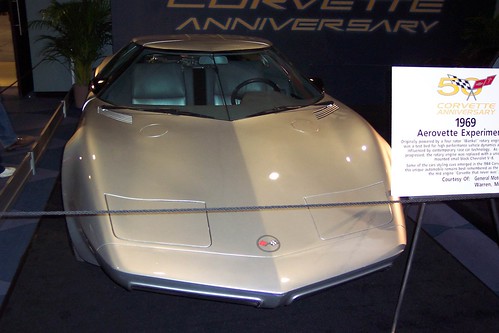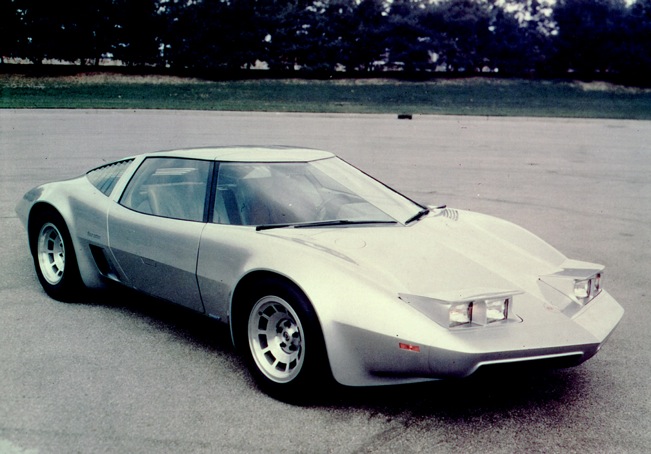 Chevrolet Aerovette
Chevrolet Aerovette
The Chevrolet Aerovette is a concept car created by the Chevrolet division of General Motors, beginning life as Experimental Project 882 (XP-882). It has a mid-engine configuration using a transverse mounting of its V-8 engine. Zora Arkus- Duntov's engineers originally built two XP-882s during 1969, but John DeLorean, Chevrolet's general manager, canceled the program because it was impractical and costly. But when Ford announced plans to sell the DeTomaso Pantera through Lincoln-Mercury dealers, DeLorean ordered one XP-882 cleaned up for display at the 1970 New York Auto Show.
In 1972, DeLorean authorized further work on the XP-882 chassis and gave it a new project code, XP-895. A near-identical body in aluminum alloy that resembled the XP-895 was constructed, and became the "Reynolds Aluminum Car." Two of the Chevrolet Vega 2-rotor engines were joined together as a 4-rotor, 420 horsepower (310 kW) engine, which was used to power XP-895. The XP-895 was first shown in late 1973. Another Corvette concept, XP-897GT, also appeared in 1973, which used a 2-rotor engine. However, with the energy crisis of the time, GM scrapped its rotary development work and all plans for a Wankel-powered car. The XP-897GT 2-rotor Concept was sold to Tom Falconer and fitted with a Mazda 13B rotary engine in 1997.
 1977 Chevrolet Aerovette Concept 1977 Chevrolet Aerovette Concept | |
| Manufacturer | Chevrolet Motor Division |
|---|---|
| Parent company | General Motors Corporation |
| Class | Sports car |
| Body style(s) | 2-door convertible |
| Designer | Chevrolet Design Staff |
 Chevrolet Aerovette
Chevrolet Aerovette Chevrolet Aerovette
Chevrolet Aerovette Chevrolet Aerovette
Chevrolet Aerovette Chevrolet Aerovette
Chevrolet Aerovette
No comments:
Post a Comment